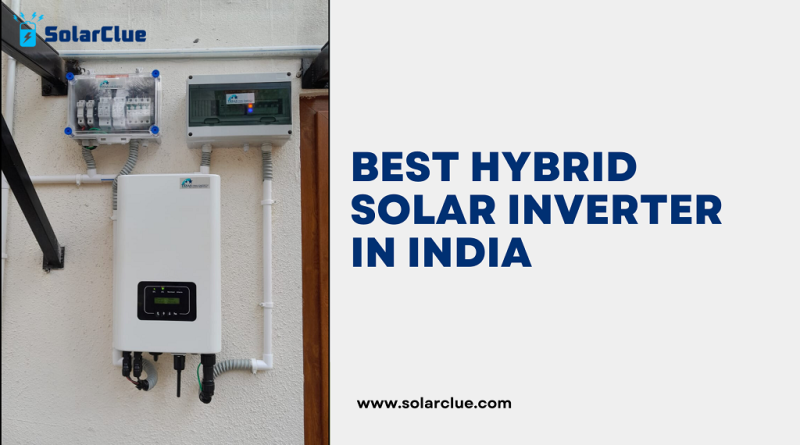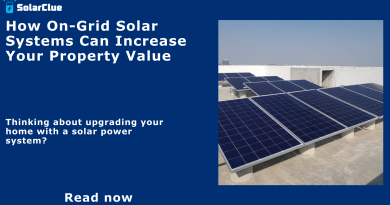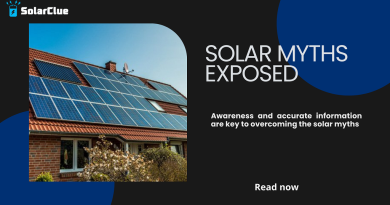Best Hybrid Solar Inverter in India
Are you considering making the switch to solar energy and looking for the best hybrid solar inverter in India? You’re not alone. With the rising cost of electricity and increasing awareness about environmental conservation, more and more Indian households are turning to solar power. But with so many options available, choosing the right hybrid solar inverter can be overwhelming. Don’t worry—we’ve got you covered. In this guide, we’ll walk you through everything you need to know about hybrid solar inverters in simple terms. By the end, you’ll be equipped with the knowledge to make the best decision for your home.
Table of Contents
What is a Hybrid Solar Inverter?
A hybrid solar inverter is a device that converts the direct current (DC) electricity generated by your solar panels into alternating current (AC) electricity, which is used by most household appliances. But that’s not all—it also manages the flow of electricity between your solar panels, battery storage, and the grid. This means that a hybrid solar inverter can store excess energy in batteries for later use, send surplus energy back to the grid, and even provide backup power during outages.In short, a hybrid solar inverter is an all-in-one solution that offers the flexibility and efficiency needed for a modern solar energy system.
Why is a Hybrid Solar Inverter Important?
Hybrid solar inverters play a crucial role in maximizing the efficiency of your solar energy system. Here’s why they’re so important:
- Energy Storage: Unlike traditional inverters, hybrid inverters allow you to store excess energy in batteries. This stored energy can be used during the night or on cloudy days, reducing your dependence on the grid.
- Grid Independence: With a hybrid solar inverter, you have the option to reduce or eliminate your reliance on the grid. This is particularly beneficial during power outages, as the stored energy can be used to keep your home running.
- Cost Savings: By optimizing the use of solar energy and storing excess power, hybrid inverters can significantly reduce your electricity bills. Additionally, in some regions, you may earn credits by sending surplus energy back to the grid.
- Environmental Impact: Hybrid solar inverters help reduce your carbon footprint by maximizing the use of clean, renewable energy. This contributes to a greener environment and supports India’s push towards sustainable energy.
Key Features to Look for in a Hybrid Solar Inverter
When searching for the best hybrid solar inverter in India, it’s essential to consider the following features:
- Battery Compatibility: Ensure that the inverter is compatible with a wide range of batteries, including lithium-ion and lead-acid batteries. This flexibility allows you to choose a battery that fits your budget and energy needs.
- Efficiency: Look for inverters with a high conversion efficiency, typically above 95%. Higher efficiency means more of the solar energy generated by your panels is converted into usable electricity.
- Warranty: A good warranty is a sign of a reliable product. Look for inverters that offer at least a 5-year warranty, with options to extend it further.
- Smart Monitoring: Many modern hybrid inverters come with smart monitoring systems that allow you to track your energy production, storage, and usage in real-time via a mobile app or online portal.
- Backup Power: Ensure the inverter can provide backup power during outages. This feature is crucial if you live in an area with frequent power cuts.
- Scalability: Choose an inverter that allows for future expansion. This means you can start with a basic system and add more solar panels or batteries as your energy needs grow.
Top Hybrid Solar Inverters in India
Here’s a list of some of the best hybrid solar inverters available in India, along with their key specifications:
- Luminous Hybrid Inverter
- Capacity: 3.5kW to 10kW
- Efficiency: 97%
- Battery Compatibility: Lithium-ion, Lead-acid
- Warranty: 5 years
- Special Features: Smart monitoring, battery management system, grid-tied and off-grid capabilities.
- Sukam Brainy Eco
- Capacity: 3kW to 5kW
- Efficiency: 96%
- Battery Compatibility: Lead-acid
- Warranty: 2 years
- Special Features: Pure sine wave output, automatic changeover, battery charging from solar and grid.
- Delta Hybrid Inverter
- Capacity: 5kW to 15kW
- Efficiency: 98%
- Battery Compatibility: Lithium-ion
- Warranty: 10 years
- Special Features: High efficiency, IP65 protection, integrated monitoring.
- Solis Hybrid Inverter
- Capacity: 5kW
- Efficiency: 97.5%
- Battery Compatibility: Lithium-ion
- Warranty: 5 years
- Special Features: Wide voltage range, integrated MPPT, real-time monitoring.
- Havells Enviro GTi
- Capacity: 5kW to 10kW
- Efficiency: 98%
- Battery Compatibility: Lithium-ion, Lead-acid
- Warranty: 5 years
- Special Features: Advanced MPPT technology, IP65 rating, remote monitoring.
Factors to Consider When Choosing the Best Hybrid Solar Inverter
Choosing the right hybrid solar inverter involves more than just looking at the specifications. Here are some additional factors to consider:
- Budget: Determine your budget before making a purchase. While hybrid inverters can be more expensive than traditional inverters, the long-term savings and added benefits often justify the cost.
- Energy Needs: Assess your household’s energy needs to determine the appropriate capacity for your inverter. A larger home with higher energy consumption will require a higher-capacity inverter.
- Installation: Ensure that the inverter is easy to install and compatible with your existing solar setup. Some inverters may require professional installation, which can add to the overall cost.
- Customer Support: Look for brands that offer reliable customer support and after-sales service. This is crucial in case you encounter any issues with your inverter.
- Local Regulations: Be aware of local regulations and incentives related to solar energy. Some regions offer rebates or tax credits for installing solar systems, which can help offset the cost.
Installation Process of a Hybrid Solar Inverter
Installing a hybrid solar inverter is a critical step that ensures your solar energy system operates efficiently. Here’s a brief overview of the installation process:
- Site Assessment: The installation process begins with a site assessment. A professional will evaluate your roof’s orientation, shading, and structural integrity to determine the best location for the solar panels and inverter.
- System Design: Based on the assessment, a system design is created. This design includes the number of solar panels, the type of inverter, and the battery capacity needed to meet your energy requirements.
- Permitting: Before installation, you’ll need to obtain the necessary permits from local authorities. Your installer will typically handle this process, ensuring that your system complies with local building codes and regulations.
- Installation: On the installation day, the solar panels are mounted on your roof, and the hybrid inverter is installed. The installer will connect the inverter to your home’s electrical system and the battery storage.
- Inspection and Commissioning: After installation, a final inspection is conducted to ensure the system is installed correctly and safely. Once approved, the system is commissioned, and you can start generating and storing solar energy.
Cost of a Hybrid Solar Inverter System in India
The cost of a hybrid solar inverter system in India can vary depending on factors such as the inverter brand, battery type, and installation complexity. Here’s a general breakdown of the costs involved:
| Component | Estimated Cost (INR) |
|---|---|
| Hybrid Solar Inverter | 50,000 – 2,00,000 |
| Solar Panels | 1,50,000 – 3,00,000 |
| Battery Storage | 1,00,000 – 3,50,000 |
| Installation and Permits | 50,000 – 1,00,000 |
| Total | 3,50,000 – 9,50,000 |
While the initial investment may seem high, it’s important to consider the long-term savings on electricity bills, potential earnings from selling surplus energy back to the grid, and available government incentives.
Conclusion
Choosing the best hybrid solar inverter in India is a crucial step in setting up an efficient and reliable solar energy system for your home. With the right inverter, you can maximize the benefits of solar energy, reduce your electricity bills, and contribute to a cleaner environment. While there are many options available, it’s important to consider your specific energy needs, budget, and the features that matter most to you. By making an informed decision, you can enjoy the peace of mind that comes with energy independence and sustainability.
Visit SolarClue® to see the best Hybrid Solar Inverters. SolarClue® actively sells solar energy products at discounts of up to 50% on its online marketplace.
FAQs
1. What is the lifespan of a hybrid solar inverter?
Hybrid solar inverters typically have a lifespan of 10 to 15 years, depending on the brand and maintenance.
2. Can I upgrade my existing solar system to a hybrid inverter?
Yes, many existing solar systems can be upgraded to include a hybrid inverter. However, it’s essential to consult with a professional to ensure compatibility.




